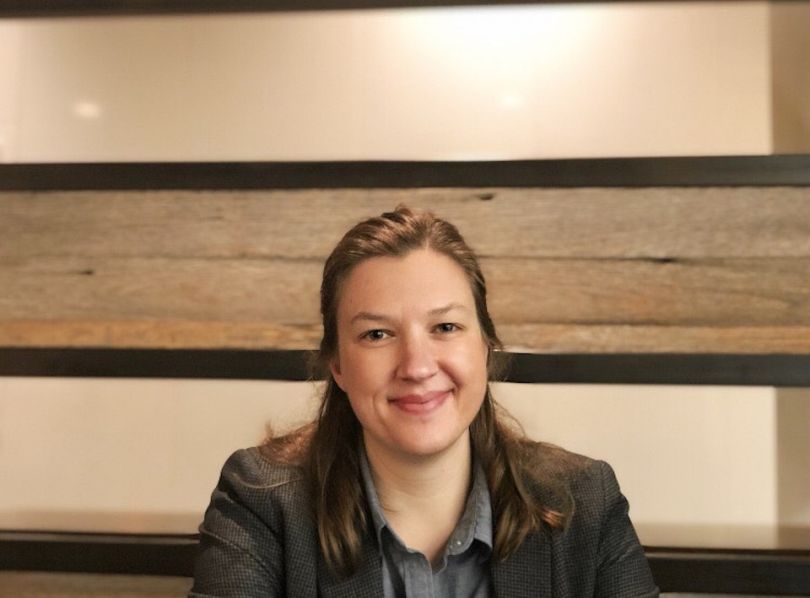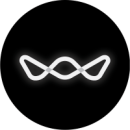Not all techies start out actually looking for careers in tech. For some, tech finds them.
In fact, many women today are realizing that the skills they were told would make them successful in [insert non-technical, stereotypical female profession] can also make them damn good developers, product managers and tech leaders.
In part two of our two-part series exploring women’s career journeys through the world of tech, you’ll hear from techies about the unexpected experiences that sparked their passion for tech and the advice they have for the next generation of women in tech.

Broomfield-based Conga helps businesses simplify the automation and management of data, documents, reporting and contracts with its suite of software solutions.
Senior Director of Engineering Regina Ocwieja shared how she found her way into the tech world, despite starting her career in accounting.
Share the story of how you got into engineering.
The transition into engineering was a long process, but I have never felt so at home. I returned to school during the Great Recession and graduated with my masters in accountancy, but I never became an accountant. My favorite classes were those that focused on databases and accounting systems.
After graduation, I started my career implementing accounting software, and after a few years, I transitioned into implementing Salesforce. After CRMCulture was acquired by Conga, I migrated from managing the professional services team, which handles technical implementations, to managing the engineering team.
What is the biggest challenge you've faced in your career, and how have you worked to overcome it?
My biggest challenge is my lack of direct software engineering experience. I still work every day to overcome this challenge by reading articles on software development, asking questions, doing small coding projects in my spare time and learning from the developers. Driving a culture that values sharing knowledge has helped me learn new technical skills and methodologies from experts.
Any advice or tips for other women pursuing a career in engineering?
Be willing and work hard to scale past yourself. Watch for opportunities for you to learn and expand your skill set, even if it’s not aligned with your direct position. Understand your business and how your role impacts the greater organization.

Alto is bringing pharmacies into the digital age with a tech-driven, user-centric approach to healthcare. Patients can go online, talk with an expert, and get their prescriptions filled and even delivered on the same day.
Engineering Manager Elnaz Moshfeghian shed some light on the motivations that drive her work and how she’s learned to embrace her non-technical side.
Share the story of how you got into engineering.
I originally wanted to go to law school because it seemed like the best way to make an impact on unjust systems. I thought it would be a good idea to study something focused on engineering or science in undergrad to mix it up from the work waiting for me in law school. I started off as an undecided physics major, but I stumbled into computer science because my university required all undergrads to take an “Intro to Programming” class.
I found programming to be frustrating and consuming when things didn’t work but incredibly rewarding when my program finally functioned correctly. The vast gap between the emotional highs and lows of programming ignited a drive to learn more and get better. By junior year, I discovered programs like Code for America and the civic technology field and abandoned my plans for law school because it became clear I could have a lot more leverage on issues I cared about as a software engineer.
What is the biggest challenge you’ve faced in your career, and how have you worked to overcome it?
I think the biggest challenge I’ve continuously faced in my career is making peace with the fact that my strengths fall more on the non-technical side of technical work. Early on I would distance myself from leadership or collaboration opportunities if I felt they would put me in a position of appearing less technical. Over time, that shifted into an acceptance of non-technical strengths while still trying to demonstrate the value of those skills and improving my non-technical skills so I can more comfortably lean on them.
Any advice or tips for other women pursuing a career in engineering?
There will be lots of challenges, fair or otherwise, that you’ll face, and it’s easy to get distracted by how you compare to others, how far you’re falling short or what opportunities you’re not getting. Try to keep bringing your focus back to what value you can add in your current position and what skills you can develop to get where you want to go. Take it one day at a time. Find coworkers and mentors who you can be vulnerable with, and don’t be afraid to ask them for help.

Wunder Capital is driving the renewable energy industry forward by helping organizations manage, fund and develop large-scale solar projects with its proprietary software and the support of both professional and individual investors.
Product Manager Katie Lynch shared how she found a way to make a tangible, positive impact on the environment by turning to a career in tech.
Share the story of how you got into engineering.
I graduated from Duke with a clear focus on building a career that made an environmental impact, so it should come as no surprise that my first job was at an energy efficiency startup in Boulder. It's there that I realized the impact that technology can have on our environmental problems, but I also discovered that there are disturbingly few startups building useful, scalable tools to solve those problems.
As a result, I immersed myself in the software development process and got a first-rate education in how engineering teams function. Eventually, I joined Wunder as employee number two, where — for the past four years — I have been helping to build a solar financing platform for large-scale solar projects across the country. Essentially, I found a way and a place to maximize my environmental impact.
What is the biggest challenge you’ve faced in your career, and how have you worked to overcome it?
At various stages throughout my career, I’ve definitely experienced a lot of self-doubts. Particularly when you're in a new role at a young company, it can be hard to differentiate between what you don’t know and what nobody knows. This used to stress me out a lot and cause me to think that I needed to ask others for answers and opinions all the time. But, after looking back on some of those scenarios, I’ve come to realize that my initial instinct or plan is usually right from the beginning. Now, I think I make decisions in the face of ambiguity much more quickly.
Any advice or tips for other women pursuing a career in engineering?
If you’re lucky, you’ll be in a job where you are regularly asked for your opinion. If not, provide it anyway, provide it confidently and don’t be embarrassed to be wrong. Even if you're new to software or to your company, you can still offer a thoughtful perspective to the problem at hand. In fact, that’s exactly what you were hired for.

Blinker is transforming the way people buy and sell cars. Its mobile app enables consumers to scan a license plate with their smartphones; obtain instant, up-to-date Blue Book value information; and then buy, sell or finance a car on the spot.
Front End Developer MaryJane Valade explained how, with a tremendous leap of faith, she made the transition from museum exhibit designer to software engineer.
Share the story of how you got into engineering.
In my previous career, I designed museum exhibits. When I looked to transition out of that, I still wanted to build things for people. At first, I thought software engineering was too far out of my reach, but after spending seven hard months at Turing School, I developed the skills to become a front end engineer, and Blinker took a chance on me. I'm happy to say that I'm no longer the only woman on the engineering team.
What is the biggest challenge you've faced in your career, and how have you worked to overcome it?
It took a while to build up the confidence to make a drastic career change later in life, but I'm so glad I did. There are so many transferrable skills from other fields that can be applied to engineering. I'm always excited to learn new things, and in this ever-changing field, that's a necessity.
Any advice or tips for other women pursuing a career in engineering?
Break the stereotypes. Be the change you want to see. If solving problems and thinking critically is something you enjoy, then go for it.







